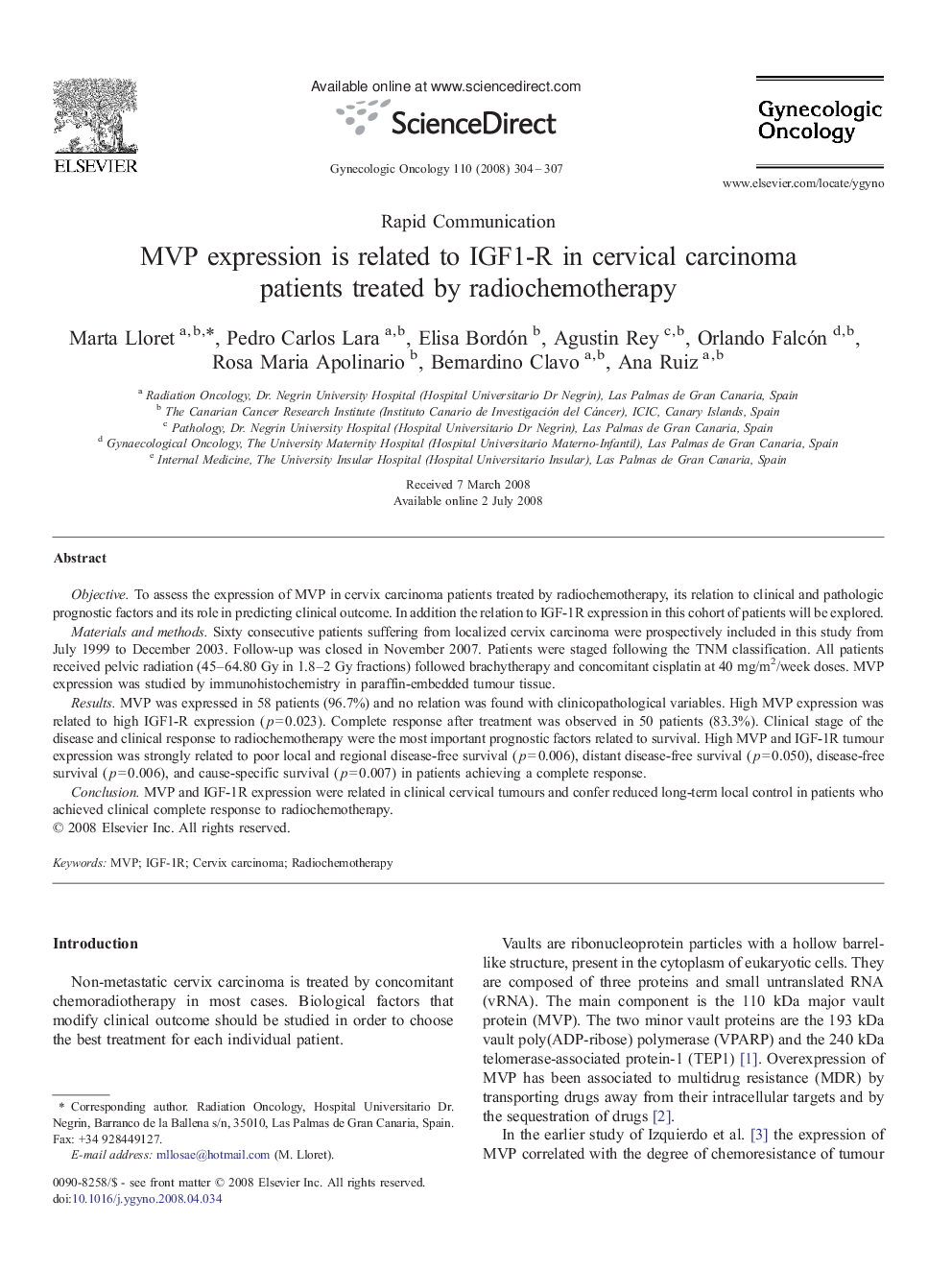| Article ID | Journal | Published Year | Pages | File Type |
|---|---|---|---|---|
| 3944501 | Gynecologic Oncology | 2008 | 4 Pages |
ObjectiveTo assess the expression of MVP in cervix carcinoma patients treated by radiochemotherapy, its relation to clinical and pathologic prognostic factors and its role in predicting clinical outcome. In addition the relation to IGF-1R expression in this cohort of patients will be explored.Materials and methodsSixty consecutive patients suffering from localized cervix carcinoma were prospectively included in this study from July 1999 to December 2003. Follow-up was closed in November 2007. Patients were staged following the TNM classification. All patients received pelvic radiation (45–64.80 Gy in 1.8–2 Gy fractions) followed brachytherapy and concomitant cisplatin at 40 mg/m2/week doses. MVP expression was studied by immunohistochemistry in paraffin-embedded tumour tissue.ResultsMVP was expressed in 58 patients (96.7%) and no relation was found with clinicopathological variables. High MVP expression was related to high IGF1-R expression (p = 0.023). Complete response after treatment was observed in 50 patients (83.3%). Clinical stage of the disease and clinical response to radiochemotherapy were the most important prognostic factors related to survival. High MVP and IGF-1R tumour expression was strongly related to poor local and regional disease-free survival (p = 0.006), distant disease-free survival (p = 0.050), disease-free survival (p = 0.006), and cause-specific survival (p = 0.007) in patients achieving a complete response.ConclusionMVP and IGF-1R expression were related in clinical cervical tumours and confer reduced long-term local control in patients who achieved clinical complete response to radiochemotherapy.
